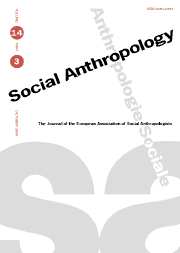No CrossRef data available.
Article contents
Young, Michael W. 2004. Malinowski. Odyssey of an anthropologist, 1884–1920. London and New Haven: Yale University Press. xxx + 690 pp. Hb.: £30.00. ISBN: 0 300 10294 1
Published online by Cambridge University Press: 24 February 2006
Abstract
This monumental biography is a labour of love by a distinguished anthropologist who is thoroughly at home in the regions where Malinowski carried out his most famous fieldwork. Yet more than 300 pages pass before the subject first sets foot in Melanesia. Part I of this volume deals with the formative years in Poland, where Malinowski was born in 1884, the son of a Cracow University professor who died when ‘Bronio’ was only 14. Young has a penchant for Freudian diagnoses and attaches considerable significance to this early loss; Bronio repressed his father and was mollycoddled by his mother right up to his fieldwork career (her main worry seems to have been his early baldness). The intellectual significance of his Polish background has already been widely appreciated in recent decades. Rather like Franz Boas a little earlier, Malinowski was torn between an austere natural-science method, represented in his case primarily by the ‘economism’ of Ernst Mach, and expansive literary, humanistic sympathies which he cultivated at the resort of Zakopane in the company of the ‘diabolical’ (and increasingly paranoid) Staś Witkiewicz (Witkacy) and other Bohemian decadents. The basic tensions are worked out, sometimes in lurid psycho-sexual detail, in the episodic diaries, on which Young relies heavily in this volume. The first derives from the year Malinowski spent with his mother in the Canaries, ostensibly as a health cure following the completion of his thesis on Mach. Bronio was already cultivating the obsessive preoccupation with himself and the need for self-discipline and ‘purity’ which recur in the famous diaries he kept in the Trobriand Islands. He could seldom conform for long to ‘the monogamous urge’, falling hopelessly in love with attractive Polish women who already had husbands. He also maintained a long liaison with a generous South African woman some ten years his senior (like others later, she could not always satisfy his craving for ‘subjective depth’ in correspondence).
- Type
- Review symposium
- Information
- Copyright
- Cambridge University Press 2006


